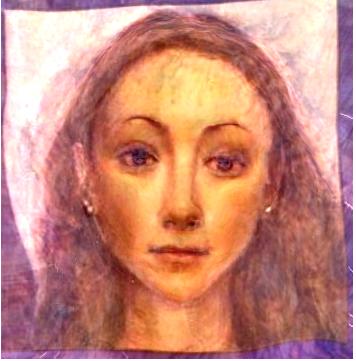This week saw an unrepentant Jerry Sandusky sentenced to what will amount to life, as well as Columbus Day, which seethed with annually increasing attitudes of "why celebrate a promoter of slavery, rape, and genocide?"
On my walk home this morning I was reflecting on the traditional way I initially learned about Columbus in school, waaaaay back in the '70s. Explorer, hero, Niña, Pinta, and Santa María. Then as a young adult I read Zinn's classic A People's History Of The United States and learned a completely different story. (If you haven't read it, then you know what to do.)
What I began recognizing as I walked was that our cultural narrative regarding Columbus (and others like him) has led directly to the destructive path of Jerry Sandusky (and others like him). We need to widely promote the telling of the whole truth about important historical figures. Did Columbus do some really challenging, brave, world-changing things? Yes. Did he do some terrible, murderous, world-changing things? Yes. But we've been focusing on only the flattering things.
The more stories we have in our cultural library in which these really important, influential dudes are just great and awesome, without the painful side of their histories, the harder it is for us to accept that someone important and influential is even capable of something like raping dozens of children. And it's also true that by dichotomizing important people into "great" ones and "monstrous" ones, we further this. Because if someone's famous, and doing some positive things, then there's no way they can be doing monstrous things, right? Totally, completely, false.
This kind of splitting actually makes it harder for us to recognize when someone we like is doing something bad. All humans can enact both good and bad behaviors. Insert anecdote regarding evil's poster boy, Hitler, feeding the deer in his garden. "Regular" people do extraordinary things (good and bad). Extraordinarily bad people do some good things, and vice versa. If we let ourselves believe that only bad people do bad things, then we blind ourselves to the possibility that what victims tell us is true, individually and as a group. We end up believing only the powerful, rather than hearing truth about them. Also, we end up blinding ourselves to the possibility of our own behavior hurting others. "I'm a good person, therefore I can't have done something harmful!" (This is actually the process behind most prejudice and prejudice denial, in fact.)
If we can stop dichotomizing and accept our shadow selves, we can learn to live our values instead of acting out our repressed traits. And if we can accept that just because someone is loved or famous or does good works doesn't mean they can't possibly do something hurtful, then we will have come a long way towards healing society.
On my walk home this morning I was reflecting on the traditional way I initially learned about Columbus in school, waaaaay back in the '70s. Explorer, hero, Niña, Pinta, and Santa María. Then as a young adult I read Zinn's classic A People's History Of The United States and learned a completely different story. (If you haven't read it, then you know what to do.)
What I began recognizing as I walked was that our cultural narrative regarding Columbus (and others like him) has led directly to the destructive path of Jerry Sandusky (and others like him). We need to widely promote the telling of the whole truth about important historical figures. Did Columbus do some really challenging, brave, world-changing things? Yes. Did he do some terrible, murderous, world-changing things? Yes. But we've been focusing on only the flattering things.
The more stories we have in our cultural library in which these really important, influential dudes are just great and awesome, without the painful side of their histories, the harder it is for us to accept that someone important and influential is even capable of something like raping dozens of children. And it's also true that by dichotomizing important people into "great" ones and "monstrous" ones, we further this. Because if someone's famous, and doing some positive things, then there's no way they can be doing monstrous things, right? Totally, completely, false.
This kind of splitting actually makes it harder for us to recognize when someone we like is doing something bad. All humans can enact both good and bad behaviors. Insert anecdote regarding evil's poster boy, Hitler, feeding the deer in his garden. "Regular" people do extraordinary things (good and bad). Extraordinarily bad people do some good things, and vice versa. If we let ourselves believe that only bad people do bad things, then we blind ourselves to the possibility that what victims tell us is true, individually and as a group. We end up believing only the powerful, rather than hearing truth about them. Also, we end up blinding ourselves to the possibility of our own behavior hurting others. "I'm a good person, therefore I can't have done something harmful!" (This is actually the process behind most prejudice and prejudice denial, in fact.)
If we can stop dichotomizing and accept our shadow selves, we can learn to live our values instead of acting out our repressed traits. And if we can accept that just because someone is loved or famous or does good works doesn't mean they can't possibly do something hurtful, then we will have come a long way towards healing society.
 (Actually now with PhD, but Doctor of Philosophy just doesn't have the same evil ring, does it?)
(Actually now with PhD, but Doctor of Philosophy just doesn't have the same evil ring, does it?)